
Dear Parents & Students,
Today marks the start of Spring Break, and the students are looking forward to celebrating Passover – some with friends, some with family, and some are traveling in Israel.
Here are some highlights from our past week:
Raquel Levit wrote about the Alternative Seder:
“The past few weeks as things have been opening up, we have had a lot of excitement and things to look forward to. This Monday “The Shai’s” hosted an alternative seder for us before we all go to celebrate Pesach and spend our spring break apart. It was so amazing to have an activity where a large chunk of the Aardvark Tel Aviv community was all together. I usually have a huge seder back home, so it was awesome to have something resembling that with all my friends. We read through different parts of the Haggadah and sang songs, which to say the least, we made our own. With Israel being on lockdown for most of the holidays so far this year, it was so nice to kick off Pesach with a sweet start. I can’t wait for us all to be together again after break!”
Carly Shindler wrote about her group’s mid-semster activity:
“I can’t believe that we only have two months left. It’s gone by in the blink of an eye, and the end will be here any second. On Sunday, it really hit all of us when Maya led a “mid-semester activity” and asked us to reflect on our time here. We all opened up and talked about the things we want to work on for the next two months. Although it seems like a short amount of time, it’s still enough to change the things we want to change. I’m excited that the country is opening up and that we will be able to “seize the day” and explore Israel… finally! I’m going to make the most of these next months, and I’m excited to see how much I grow.”
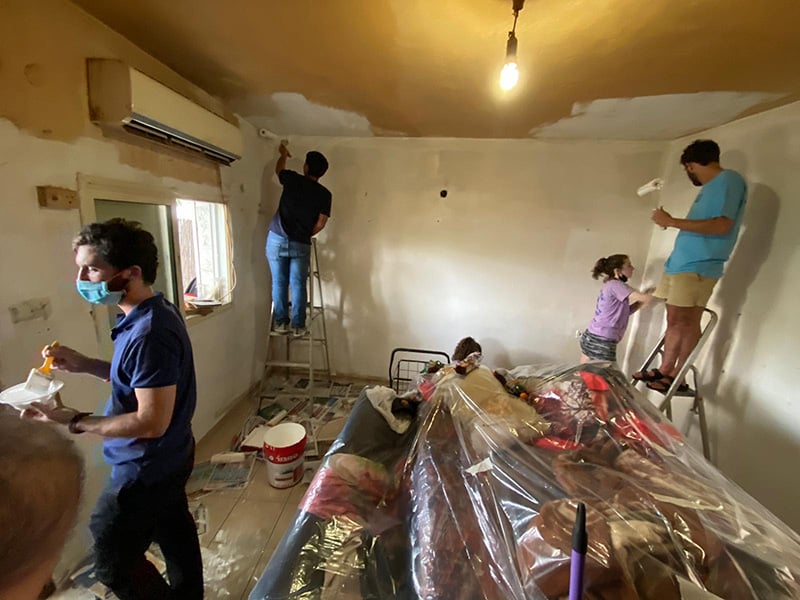
Dani Fox wrote about her volunteering experience this week:
“This week, a group of us Aardvark students were given the opportunity to volunteer and help locals in Tel Aviv. Our task was to paint this nice elderly couple’s home white after being a dark gloomy shade. This transition helped the owners living there because they suffer from schizophrenia. The color brightened up the space, which we hope will help improve their mental health. We also bleached the floors and cleaned up their home after we finished. They were very appreciative, since they are unable to do it themselves in their condition.
While we were volunteering, we had a blast! All of us were enjoying each other’s company, listening to music, and having fun. I highly recommend anyone who has free time on their hands to go out and volunteer. The experience is amazing, and all the hard work is worth it in the end. Thank you so much, Shai, for allowing us to work with you to be a part of a great cause!”
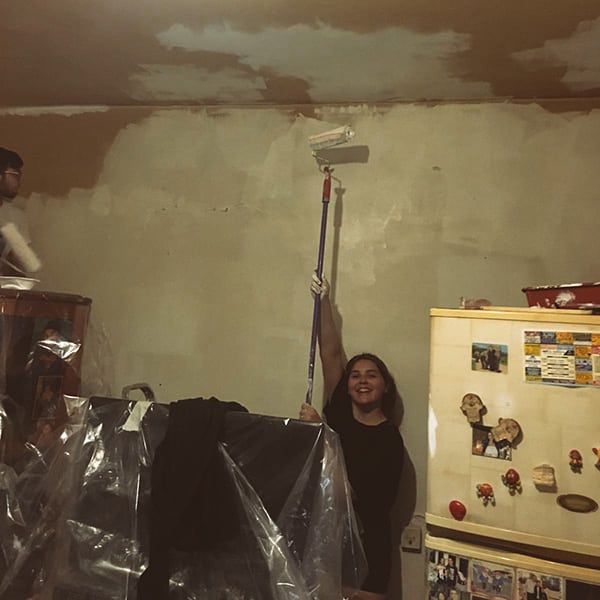
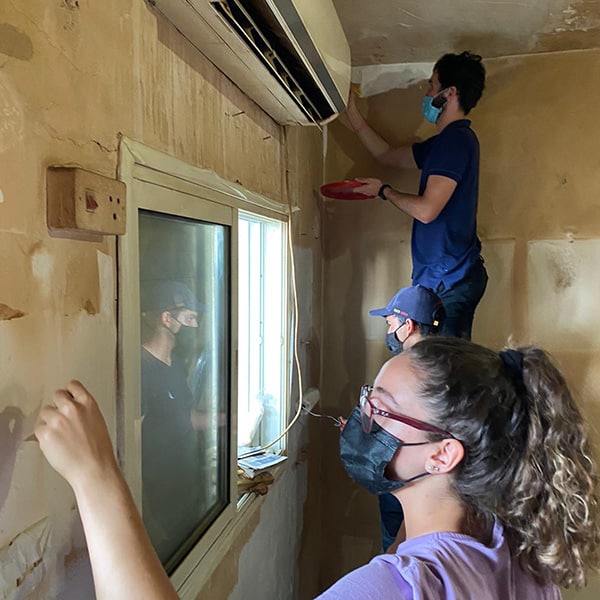
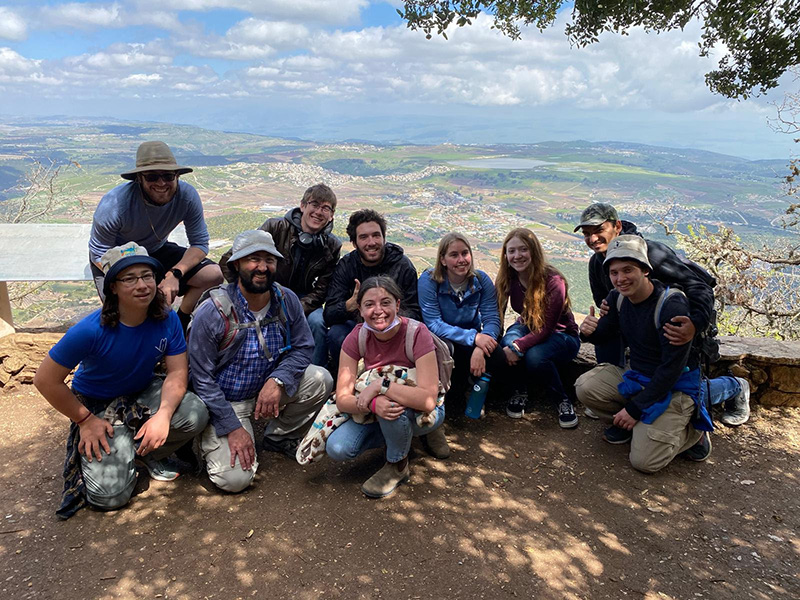
On Monday, we continued our study of the Haggadah as preparation for Seder night this week, exploring the idea of questions and the four children in the Haggadah and how each of them represents a different approach to Jewish history.
On Wednesday, we visited the Biblical Museum of Natural History in Beit Shemesh, where we met Rabbi Dr. Natan Slifkin, and entered into the Biblical natural world through interactive displays and amazing creatures. We learned about how the animals and natural world described in the Bible comes to life in Israel in a new and exciting way.
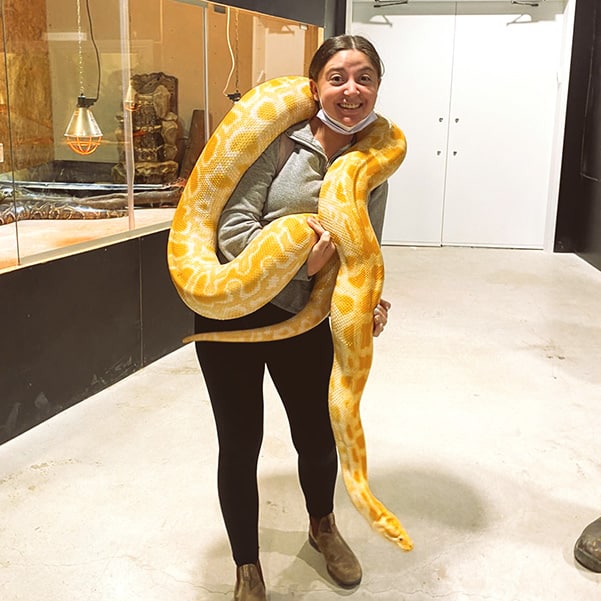

Ben Rubinstein wrote about the Selah Shabbaton in Tsfat:
“Yeah, I hate Tsfat, to me it was always just the place you went to renew your ID card or get a passport photo taken,” was what a young person living in Tel Aviv told me late this week.
For me, my weekend in Tsfat was a holy and high experience. The entire city floats on a cushion of divine presence, and every step up and down the endless stone stairs feels like you’re bouncing on infinite spirit. I could try and describe my experience: the Breslov beit midrash, the Carlbach service; but I’d like to use the space I’ve been given rather, to talk about contrast.
We left for Tsfat early Friday morning, and with the election the following Tuesday, there was a palpable sense of tension all week long, which was only made more obvious by the posters of white-haired Jewish men with the little white peteks (lit. note, refers to the ballots in Israel marked with party names) in the corner.
Israeli politics are complicated, to say the least. Part of the electorate doesn’t seem to care about national issues, part only cares about foreign perception, half of the electorate can’t even agree on whether the other half should even be part of the electorate, and the other half doesn’t think the electorate should exist at all!
The more I steep myself in religiosity, the more I find my conversations with members of the secular left wing leaving a sour taste in my mouth, and the table talk with Orthodox individuals feels equally acrid.
As Jewish children in the Diaspora, we’re taught to see Israel as the infallible holy land and homeland of our ancestors, brought alive by our grandparents and teachers who sunk in their roots to build a utopia for us and our children.
But the story is different for secular Israelis here: they are disillusioned. They see this country underneath the fog, without the cushion. In some sense, they are deflated.
Yet, there is truth to their frustration, as religious corruption, political mind games and financial disagreements plague the ultra-Orthodox side of Israel.
Tsfat reminded me about the tension that exists in this country: how to solve the problem of creating a Jewish, democratic state while incorporating the world of diaspora. On some level, it also reminded me of the beauty in this country. Things we so often miss because we see them as foreign, or worse, mundane.
I implore us all, as we go into the rebirth of the Jewish Nation, to think a little about the mundane things in our every day life, the chores and hassles we do out of necessity. Because often, what we might see as mundane holds untold beauty.”
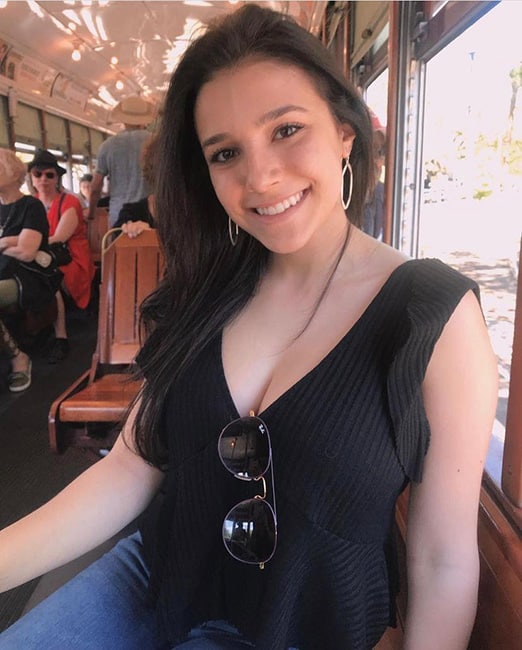
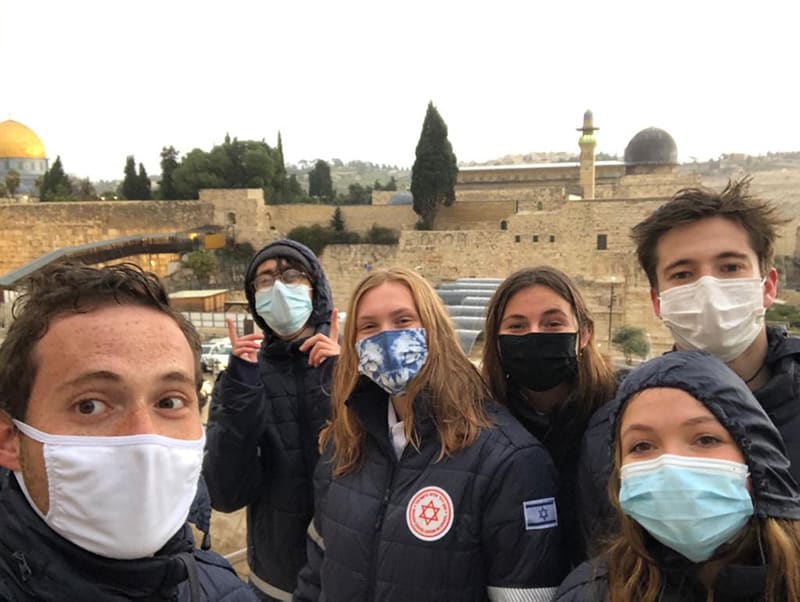
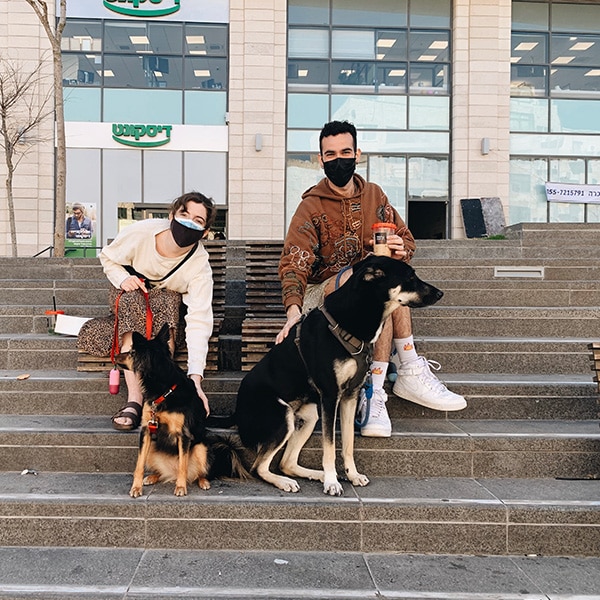
Shabbat Shalom and Pesach Sameach,
Etai

















